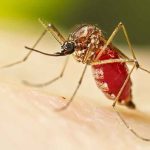Dr. N. Munal Meitei,
Environmentalist, email-nmunall@yahoo.in

“If a country is to be corruption free and become a nation of beautiful minds, I strongly feel there are three key societal members who can make a difference. They are the father, the mother, and the teacher.” – Dr. APJ Abdul Kalam
Teachers’ Day is celebrated on 5 September to honour the teachers for their contribution to our lives. By imparting essential knowledge and pointing us in the right direction, teachers play an irreplaceable role in the society. The day marks the birth day of the first Vice-President and the second President of India, Dr. Sarvepalli Radhakrishnan, a scholar, teacher and renowned philosopher and Bharat Ratna awardee who was born on 5 September, 1888. On this day, students express with great enthusiasm of love and gratitude to their teachers.
Our planet is currently in dire need of monumental efforts to protect its environment. We can no longer overlook the anthropogenic devastating effects on the planet. Environmental awareness is a critical aspect of sustainable development, and teachers can play a pivotal role in promoting it. With the increasing concern about climate change and other environmental issues, it is imperative that school and teachers must incorporate with environmental education into their curriculum to create, informed and responsible citizens.
Given the situation, environmental education is a modern-day necessity. One of the most effective ways to promote environmental awareness is the classrooms. The aim is to make students aware of the importance of nature and everything that encompasses it. The most effective relation between teachers and students is positive, supportive, and build trust. In this regard, teachers can play a huge role in creating environmental awareness among students and nurturing the new generation for more responsible towards the environmental protection.
Environmental education is now a pillar of the primary education and teachers are guardians for the pillars. School children need to understand the importance of nature, its resources and plants and animals. Only then they can really involve wholeheartedly in the care and preservation of the nature. Teachers in this regard play a significant role. They are the ones who could shape the minds of young ones from early days to be responsible towards nature. They have to assume the responsibility of instilling the values and ethics needed to protect the environment.
Teachers are the starting point for learning about the natural environment for every students. Environmental education involves both the natural and physical world and the impacts of human activities on it. Students can learn about different environmental issues, such as climate change, pollution and biodiversity loss. They can also learn about sustainable development practices and how to reduce their environmental impacts. Teachers help students to develop a deeper understanding of the nature and their role in it.
Teachers can also encourage sustainable practices like reducing energy consumption, recycling, and reducing waste. They also can encourage adopting practices, such as using less energy, conserving water, reducing food and plastic waste, using public transports and reducing their carbon footprints.
Teachers can initiate for environmental activities like tree plantation, clean-up drives and awareness campaigns on different environmental issues with the students. These activities can help students to understand the environment as their life’s most inextricable part.
Teachers can encourage students to participate in the environmental awareness programs, painting, debating and essay competitions. Teachers play a crucial role in promoting environmental awareness in many of the subjects taught in the school.
Climate change has a drastic effect on the whole of the planet resulting in erratic weather and rainfall. Rise in temperature, resulting in heat waves, more forest fires and melting of polar ice caps. The ultimate goal to involve teachers in environmental conservation is to minimise human impact on the environment so that the planet can heal and rejuvenate. The objective is also to reduce ecological footprints, develop respect for nature and take actions that can help to preserve the environment. Thus the primary responsible lies with the teachers. Teachers are the ones with an immediate and long-lasting impression on a kid’s life.
The most challenging part of environmental education is to teach students, the values of the environment in a way that is easy to understand. Therefore, special attention is needed towards the teaching methodology for a better understanding of environmental issues. To begin with, the visual and creative learning approach with the modern social media platforms can be highly effective for students to understand the basic concepts of the environment.
There is no better way to inculcate respect for nature than to encourage students to spend some time with nature. Field trips to local parks, nature reserves and organic farms may organize regularly, allowing students to witness environmental conservation efforts firsthand. These excursions not only enhance academic learning but also cultivate a sense of belonging and appreciation towards the nature. The little minds will acquire the role and love of nature and understand the need for a clean environment. It is easier to protect something while we have a direct connection with.
Practicing eco-friendly habits is one of the most significant environmental activities for students. Beyond theoretical knowledge, it emphasizes hands-on learning experiences to deepen students’ connection with nature. These initiatives not only benefit the environment but also foster a sense of social responsibility among students. Thus, on coming the Teachers Day, teachers can help to nurture a deep respect and understanding to create a brighter and greener future for all.













